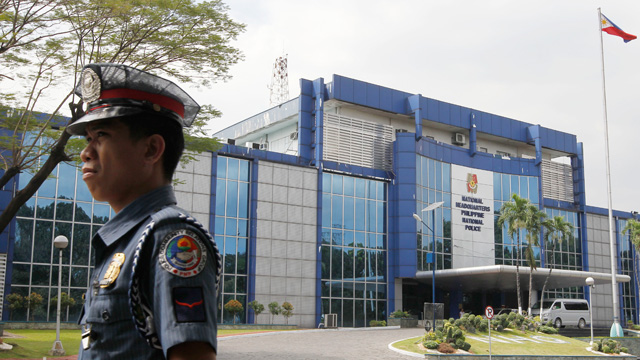SUMMARY
This is AI generated summarization, which may have errors. For context, always refer to the full article.

MANILA, Philippines – Despite what he considers a successful first semester, Philippine National Police (chief) Alan Purisima wants to push for major changes in the organization.
When the 16th Congress opens on July 22, one of the reforms he will be lobbying for is to open the police force to non-college graduates, as long as they finished high school under the new K-12 system.
The PNP chief mentioned the proposal on Wednesday, July 17. Based on the proposal that the PNP is drawing up for Congress, Purisima said high school graduates who will apply to enter to the force can be “given the opportunity to finish college provided they pass the NAPOLCOM (National Police Commission) exams.”
They will, however, be limited to lower ranks.
Purisima said he will also push for the reorganization of the PNP because it “is still organized like a military organization” and not as civilian organization as it is supposed to be.
The PNP was created in 1991, when the Philippine Constabulary merged with the Integrated National Police to form a civilian national police force. Before this, the Constabulary was part of the Armed Forces of the Philippines.
The schools that train policemen should be “handled by the PNP,” he said, because “being a police is learned most from experiences of policemen themselves.”
Mid-year crime-solving report
Meanwhile, Purisima shared the PNP’s accomplishments for the first half of the year, highlighting the May 2013 Elections and the Atimonan shooting incident as “daunting challenges” they faced but succeeded in.
He said the PNP has punished those involved in the Atimonan incident as recommended by the National Bureau of Investigation and is now pressing appropriate administrative charges against them.
Purisima said the PNP also succeeded in significantly decreasing election-related violence, as well as neutralizing private armed groups during the election period.
According to the midyear report, the PNP arrested 16,661 wanted men by law for involvement in criminal activities in the first 6 months of 2013. An additional 10 were killed while 131 surrendered to police.
In the PNP’s campaign against organized crimes, 76 groups were neutralized, 471 members arrested, and 111 firearms confiscated.
It also confiscated 3,539 firearms under its Oplan Katok or house visits, search warrant operations, and on-the-spot gun checks.
On the anti- illegal drugs front, 2,434 were caught in buy-bust operations, 2,024 in raids and searches, and 76 in marijuana eradication operations.
The campaign against illegal gambling also saw 6,366 offenders arrested.
In the first half of the year, the report showed a 13-percent rise in carnapping cases from the same period in 2012, peaking at 3,957. However, the recovery rate also rose by 15 percent from the first semester of last year, with 565 carnapping suspects arrested.
“Our crime incidence went up, but we caught more [criminals]. I have asked the police to continue their good work in arresting criminals and maintaing peace and order,” Purisima said. – Rappler.com
Add a comment
How does this make you feel?
There are no comments yet. Add your comment to start the conversation.